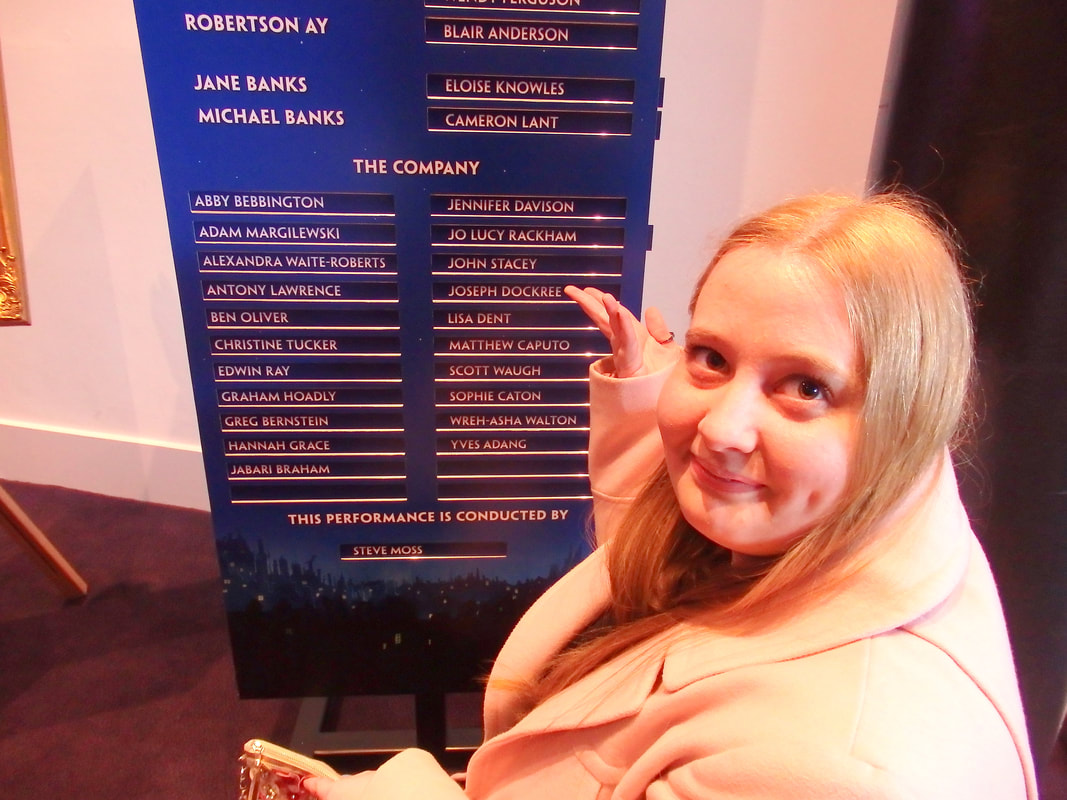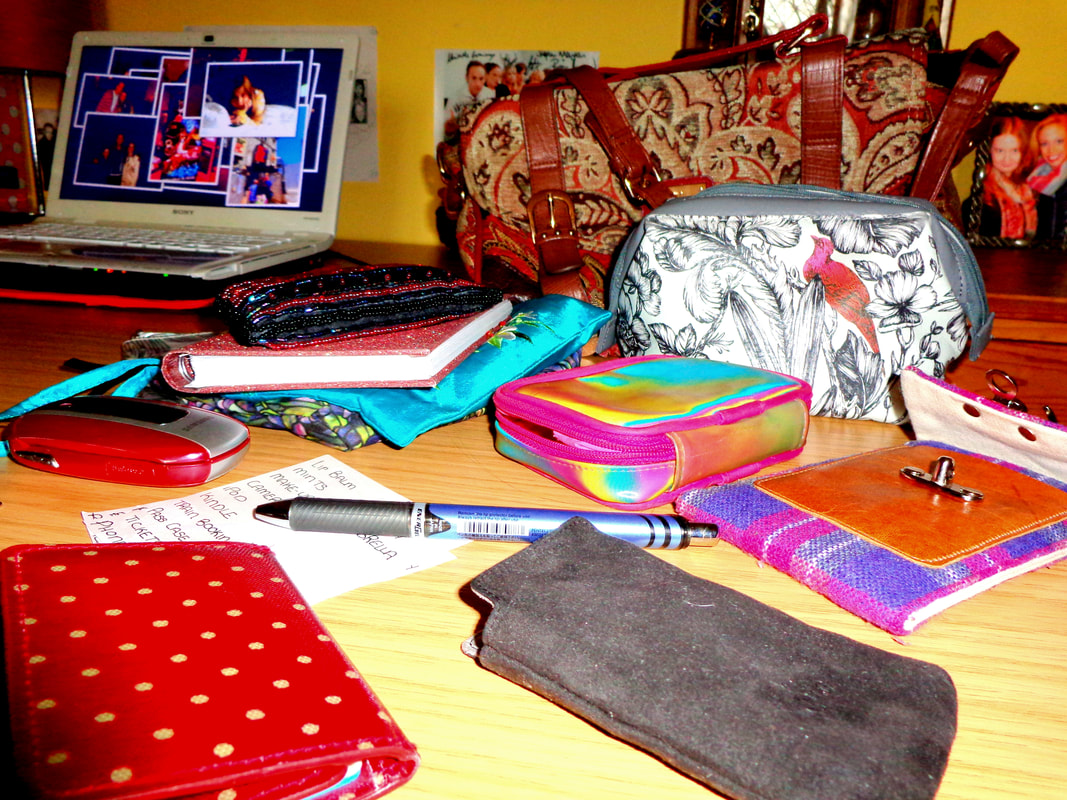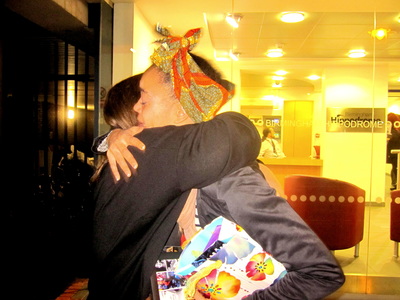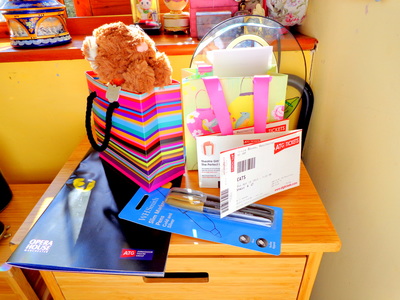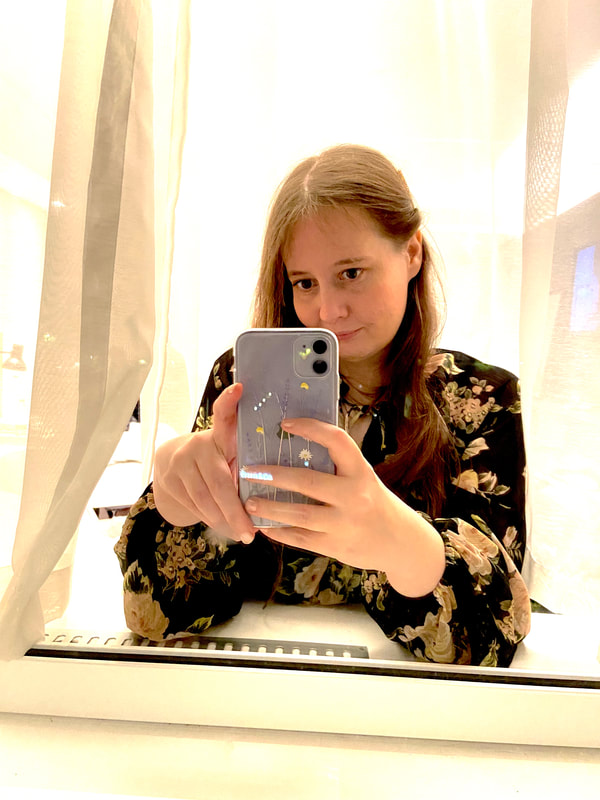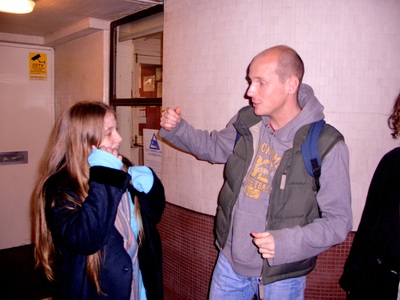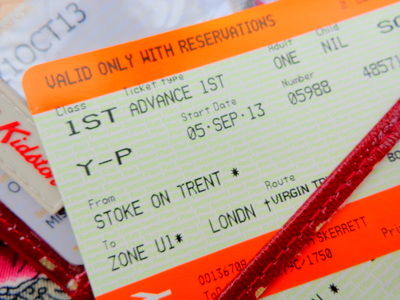Stage Dooring Hints & Tips
'With cats, some say one rule is true; don't speak 'til you are spoken to. Myself, I do not hold with that; I say you should ad-dress a cat, but always keep in mind that he resents familiarity. You bow, and taking off your hat, ad-dress him in this form; Oh Cat.'
— Cats the Musical, The Ad-Dressing of Cats
I've been trying to hone my stage dooring techniques since 2006 - and if there's one thing I've learnt for sure it's that there's no such thing as a 'perfect' stage door experience; something will always go wrong, you will always say something stupid you regret later, or miss a member of the cast because you were looking the wrong way. But, having said that, there are always ways of giving yourself an advantage and making sure your experience is still a positive one, with as little as possible going wrong. So here's just a few hints and tips to help you get the most out of your experience; they range from preparation to stage door etiquette, and I promise you all of these tips have been things which have helped me at one point or another during my stage door adventure, and I hope they will help you too if you decide to go stage dooring next time you're at the theatre.
1. Always find stage door before the show if you can.
If it’s the first time you’re going to a theatre, and you’re planning on stage dooring after the show, leave yourself time before the performance to work out where the stage door is and maybe even scout around on Google Maps to see if you can find it before you even get there; the stage door isn't always as obvious you'd think and sometimes it isn't as easy as just walking around the theatre! Nine times out of ten, stage door will be obvious, but some stage doors aren’t that clearly labelled, can be down alleys or steps or can only be reached easily from one side of the theatre - some are even inside the building or not labelled at all, and there’s always a chance of construction work obscuring your view. Sure, stage door might be obvious and you'll find it in ten seconds, but you could not check at all and end up circling the theatre for half an hour after the show and if there's someone you really want to catch after the performance than you simply do not want that stress of not knowing where you're trying to get to whilst on a ticking clock before that person leaves. Trust me: it’s always a case of better safe than sorry!
|
2. Plan, plan and plan your trip!You'd be surprised how much can go wrong if you don't have a plan! Going on a trip to a theatre in London or in a city that isn't your own can be complicated, and even if you know what you're doing, you always have to be sure to keep track of train or bus times, take the time to know where you're going and how to get to and from the theatre or your hotel and keep track of your tickets and what you need for stage door. Most importantly, you need to know what time you need to be where and have a clear idea in your head of the absolute essentials that can't be easily replaced once you get where you're going. Make lists for packing but also for what things you need closer to hand: it'll help you process things and get them set clearly in your mind. If you’re going to a theatre for the first time, give yourself plenty of time to be lost, to look for stage door, to get to grips with train or bus times and establish what time you will need to leave stage door in order to not end up stranded or having to pay for another ticket to get home. Don’t ever leave yourself in a situation where you’re half-an-hour away from curtain-up and not sure which way to walk to get to the theatre, it'll stress you out and spoil your experience of the show, whilst also annoying those already in the theatre when you come in late and distract them from the performance! Equally don't miss your train home for the sake of trying to get one more actor to sign your programme. Build as much "in case of emergency" time into your schedule as you can afford both before and after the show and if you are travelling by train always be sure you know before you go what exactly your tickets allow you so know whether you have any flexibility when it comes to times. Always make sure that you have the basics covered (tickets, camera, phone, etc.) because as long as you have a checklist of those things then nothing extremely bad will happen to you, and anything that does happen you will likely be able to plan around.
|
3. Make a 'Survival Kit' for your trip.
For any theatre/stage door trip to run smoothly, there will always be certain essentials and essential to have on hand that you use time and time again - these will no doubt vary from person to person, but no matter what your essentials may be I find it always helps to avoid forgetting anything if you've got these items kept together and close at hand at all times - I have ticket files and go-to mini-bags which I can use to keep these items together so that I know when I look in my handbag and see that bag there then I'm good to go. My go-tos consist of a pack of mints, compact hair brush/mirror, my camera plus a spare battery, my ticket file and a lip gloss, and if I'm travelling via train then I will also include a pass case. Sometimes I will also carry a bottle of perfume if I'm going straight from the train station to the theatre and not staying at a hotel, just in case I end up sitting next to the guy eating a Subway on the train (you'd be surprised how many times that has actually happened to me, but maybe I'm just unlucky!) Having everything in one known and easy-to-locat place leads to a lot less moments of panic when you can't find something, and definitely helps prevent outright disasters like forgotten tickets.
|
4. When you get to stage door, try and pick a good position to wait in.
It may sound ridiculous, but a good spot at stage door can make the difference between getting an autograph and not. Usually, the best place to stand at stage door is just to the left or right or the door, close to the theatre wall. It sounds terrible, but you need to block the performers' path if you want to stop them rushing off into the night after a show. Stand in a spot where you can see cast members before they're about to head either way down the street, and if stage door is open then stand in a spot where you can see in to give you some advanced warning. If stage door is crowded then getting a spot close to the door can be next to impossible, but this isn't an entirely bad thing! If you stand right back instead, directly opposite the stage door, and wait patiently behind the rest of the crowd, then when performers do come out you simply let them work their way around the group and when the rush begins to clear you actually get more time as there should be less of crush so you can get to chat and get the photograph and signature you want without so much chaos surrounding you. When it comes to finding a good spot, stage doors with steps down to them are gold-dust! If you stand at the top, they provide you with an early warning for when a performer is coming and, if you’re still trying to work out if someone is in the cast or not, they give you more time to compare them to their headshot - whilst if you stand at the bottom you can be super-quick to get to a performer before the rest of the crowds. Glass doors are also useful for spotting who you're looking for nice and early so you can be right ready for them when they come outside.
|
5. Pre-show stage dooring is all about the timing.
If you want to go to stage door before a show, leave yourself plenty of time. For a show like Cats, where the make-up and costumes are so complex, you may need to be there two or more hours before the show is due to start. When I used to stage door pre-show at Cats I usually arrived around the two hour mark, but even that early some people would already be inside the theatre, especially on days where members of the cast would have cover runs. For other shows though, where the make-up isn't so intense, an hour to an hour and a half can be enough for you to see people arriving, though against this depends on what rehearsals etc. may be scheduled for cast members that day. It's important not to expect too much when pre-show stage dooring, however. Whilst the theatre is a fun, day-off activity for us, it is still the actors' JOB and they need to be there on time, sign in and prepare themselves to put on a good performance, so don't expect more than a brief chat, and only ask for a signiature or photograph if they don't seem in a hurry. If they say they can't stop, don't be offended; they are human, they oversleep/run late/have things to do just like we do and you have to respect that, even if means you don't get the time you want with them.
|
6. Patience is a virtue.
Patience is key when going to stage door both for someone specific and for generally meeting cast members/getting their autographs; this is especially in shows with heavy make-up or complex costumes (such as Cats.) If you’re absolutely certain you haven’t seen your favourite performer, then remember it's unlikely they would have had the time to get ready and go before you got there so there’s a good chance they’ll still be inside the theatre: wait it out, it usually pays off. I've held out and held out a few times and been rewarded with the exact person I was waiting for - the 2013 Cats tour's Bill Bailey got a lovely surprise when I did a little dance for joy after he was the last to appear one night at the Manchester Opera House! As much as it might feel like an eternity for you when you're trying to get out of a crowded theatre, you probably still have more time than you think before the cast will begin to trickle out of the theatre and if you've gone to a show specifically hoping to see someone at stage door then you should be sure to take whatever chance you can to see them, even if that means asking to make sure they're still in the theatre...
|
7. Don’t be afraid to ask! (Politely!)
If you're looking for someone in particular, then 99.9999% of theatre people are more than happy to check who is still in the theatre for you and tell you if someone has already left. Similarly, if you're finding it really difficult to tell who is who, let a cast member you have picked out know and they may help you spot people or even point you out to other cast members. However, when asking someone in the cast to point other people out to you, please do remember they've just been part of the show too and don't be rude by cutting straight to asking for someone else! Show your appreciation for all the people in the cast you're lucky enough to meet!! Usually the cast really are happy to help - they're also very understanding about people who are there for specific members of their cast - and they will be very sweet about it. Asking for help certainly proved invaluable me in my early days at Cats’ stage door before I got better at working people out from headshots and "theatre person vibes" (sounds ridiculous, but it's a thing!) I personally hate putting out call-outs for performers but that is something you can ask the stage door keeper to do for you if you're desperate (most will do it for you though not all.) A call out also somehow feels much less like you're bothering them when you get one of their fellow cast members to put in a word for you so you could also ask someone you've already met to put the call-out in for you or they may even volunteer to go and look - both of these scenarios have happened for me and it was invaluable! Performers are usually touched that you care enough to seek them out so don't be too shy about being proactive. If you spend a lot of time with a specific tour or cast then the chances are you will build up enough of a friendship that they will quickly spot you at stage door, and even cast members you don't often speak to will know which members of the cast you are hoping to see and the will put a word in for you without you having to ask - and even if you do ask, they'll probably guess who you're looking for before you say their name.
|
8. Don't lose hope just because you're struggling to recognise anyone.
Headshots can be deceptive, and people sometimes look very different at stage door to how they did up on the stage (especially after a make-up heavy show like Cats), but try and persevere because you will often be able to at least partially recognise someone from their headshot, even if it takes you a while - there will also be context clues like who they walk out with as ushers and orchestra will tend to leave in groups and cast members are more like to be together or entirely solo. Try and give yourself a head start on who you're looking for by studying the programme before the performance and during the interval, it really does help. Often, you can just tell someone who is in the cast. A lot of theatre people have a look and an aura about them that's hard to pinpoint or describe, but it's something I've come to really pick up on over the years - there truly is just something special about them, their eyes, their voices, their mannerisms, the way they speak and dress, the bags they carry...it's hard to explain but it is something which seems to just stand out so much when you're at stage door. If you’re really really stuck as to who is who? Try to find some other people waiting and hover near them so you can see who they ask to sign their programmes, or, if you have managed to get one cast member's autograph, see if they’ll point anyone else out for you afterwards. Another good trick is to listen to what the performers call each other and try to match the names up with programme entries to see who is who.
|
9. Matinee stage dooring can be very tricky, but don't be disheartened and take your chance if it's your only shot!
Stage dooring after a matinee can often be tricky, and if you have tickets for a matinee don’t expect to be getting the autographs of the whole cast in your programme very easily. For Cats in particular, because of the make-up, a lot of the cast prefer to stay in the theatre in between shows and, unless you ask someone to fetch a specific cast member for you or put a call-out out for them, you might not see exactly who you want to see. If you can only do a matinee then be bold and ask someone if you want a specific performer - take whatever help you can get but be gracious about it and not pushy or overly demanding. Some cast members will always appear, it all just comes down to their personal preferences. Make the most of who you get and don't be rude about trying to get someone to come down; the time between matinee and evening is a time for the performers to relax and catch their breath in the middle of their difficult two-show days and if they'd rather sleep than talk you can hardly blame them after you've just seen them give their all to give you an enjoyable show.
|
10. Give your favourite performer some notice if you're going to a show and hope to see them.
If you’re going to a show hoping to see a specific performer who knows you from previous shows then it’s often a good idea to try and let them know you’re coming so they will be aware they shouldn't rush off too quickly after the show or that they should come out after their matinee. When they know you’re there they can also sometimes look out for you during a show if you're near the front row as well as being likely to make an effort to look for you at stage door. This is especially useful if you’re in for a matinee or on a day your favourite performer may have a train/bus/taxi to catch, as performers who don’t usually leave the theatre between matinee and evening might make the effort to come down and see you if they know you’ll be waiting and if they have somewhere to be they may make sure to hurry out of stage door just so they can spare you a little time before they dash off. Writing ahead is the best way of doing this rather than trying to make yourself stand out amongst their social media notifications, and writing to performers at the theatre is simple - just address your letter: '[Performer’s Name] (Cast of [Show’s Name]) c/o [Theatre’s Name]’ and the people at stage door will always pass the letters on for you. If you don't feel you know a performer well enough to write ahead, pre-show stage dooring is an alternative.
|
11. Be ready when you ask for an autograph or photo.
Try to arrive at stage door with you plan of action clear in your mind and as little stuff to hassle you left to do when you come to getting the autograph or photograph you're looking for - that way you don't stress yourself out and don't waste anyone from the show's time. Have your camera/pen/autograph book/programme/etc. at ready and start getting everything in place from the moment the lights come up after the show so you arrive at stage door already set – performers are quite often in a rush and there is nothing more embarrassing than keeping them waiting whilst you sort yourself out, and I should know because I’ve been caught out so many times on that front in the past! Since I started getting everything ready from the moment the curtain comes down I have been much more efficient and a lot less stressed!
|
12. Beware of stage door's more chaotic nights.
During the week, stage door can often be a very quiet place, with no-one but the cast around, however, there are other nights when stage door can seem like the busiest place on earth! Shows with celebrities or famous West End productions will be busier than most, and will likely have a decent sized crowd waiting even on week nights, howeer for a show on tour then Friday and Saturday nights tend to be the craziest, especially Saturdays as not only will more people be waiting but also more of the cast may be trying to dash off to get somewhere for their day off the next day or even just to go out on the only night they don't have a show the next day. The most chaotic stage doors will often be on tours during a show's last night in a city. Touring casts are often in total chaos on the night of a show leaving a theatre; they will be loaded down with suitcases, waiting for taxis, giving lifts to other cast members, needing to get on the road as they're driving back to their homes or desperately trying to make last trains/buses out of the city. And on top of all that, the tour’s techies and roadies will be trying to load the set/costumes/props/etc. onto the lorries to get them on the road to the show's next city in time. Try not to get in the way and be as respectful as you can of the fact people have to go, but don’t be shy to pipe up with a polite ‘Excuse me, could I have a photograph with you/could you sign this for me?’ as someone passes you. Most will stop and quickly sign something or have a photograph, if they notice you in the chaos and they’re not in too much of a rush. Just thank them even more profusely than usual afterwards and let them on their way as soon as you can. Other chaotic stage door nights include any evening show that falls in a school holiday - a lot more people go to the stage door on these days as people are more willing to let their children get their programmes signed when there's no school to worry about the next day. Try your best to combat the chaos, stand back from the crowds and, as mentioned before, be patient.
|
13. Give credit to the unsung heroes and show them what they do matters: shows are carried by little-known characters, ensemble, swings and understudies.
If you're stage dooring for someone specific, don't say patronising or condescending things in earshot of performers who you are not there for - I shouldn't have to say that, but you'd be amazed by some of the things I've heard people think it's ok to say and day loudly. If you're not stage dooring for someone you already know or someone you know of, then don’t just go for the principal cast and no-one else. Some of the best moments I’ve had at stage door have been when I’ve surprised an ensemble member or a ‘minor’ character in a show by knowing exactly what they did during the show and complimenting them on it. My favourite character in Cats, for example, is Carbucketty, and so many people don’t even know which one he is; when I told the 2013 Carbucketty that he was my favourite, he said it had made his day. All the ‘kittens’ in Cats appreciate it when you know who they are and what their character did in a show, and it’s the same for ensemble members in other shows; they are the absolute engine room of the show but often get very little recognition, and you can really make someone’s day at stage door just by letting them know you noticed their efforts. It just so happens that a lot of my favourite Cats characters are the under-appreciated ones, so it's I've ended up spending a lot of time talking to these hidden diamonds of various casts, but it's something I'm very grateful for as it's given me even keeer appreciation for what they do than I already had. Never, ever fall into the trap of being rude or snobbish or even pitying about what they do just because their part seems small to you; the show would simply not run without them and they give everything to their performances despite being sometimes overlooked a little by audiences - be that person who makes someone's day by showing a little respect and gratitude for all their talent and hard work, or at the very least don't be one of those people I've sometimes heard saying (within earshot of the performer!) "Oh, it's only....." or "I feel so sorry for them!" as though they're unimportant! It's ignorant and wrong to assume that because someone's part is not named, or their character doesn't have a song, that they are somehow less talented or interesting. Also, don't forget that understudies and swings need your love and support. If you recognise someone who was an understudy that night, or a swing who went on for the performance, then be sure to let them know you noticed and enjoyed what they did - it often means even more to them as very few people remember who was on as an understudy by the end of a two hour show and they don't get as much credit at they ought to. Swings and ensemble members who are understudies have to know multiple parts and must be able to perform them all to a high standard, sometimes at a moment's notice - it's crazy that there are people in the world who actually feel disappointed when they 'only' see a swing or understudy perform, please do not be one of those people! It's a tough job and a lot of them do it incredibly well and with an amazingly great attitude.
|
14. Always be polite and remember that basic human kindness costs nothing.
I cannot stress to you enough how important this is! Politeness, gratitude and consideration will go miles and miles, at stage door (and in life!) What you have to keep in mind is that the actors are just doing their jobs, and sure, from the outside it looks glamorous and exciting, but it's still a day at the office to them and it is hard and tiring. Please, thank you, excuse me, sorry to bother you - they're so simple, and so easy to say, yet they will go a long way. Even the most stressed-out, bone-tired performer will recognise the effort when you show them kindness and understanding like that. Rudeness at stage door is unkind and unnecessary: treat them with respect because they deserve it, offer kindness and it will probably be returned to you. If you're understanding and polite, they're more likely to want to be around you and to want to talk to you, and that way everyone involved gets a better stage door experience. They will have good days, bad days, and days when getting through a two hour show is all they can bear - just a simple 'thank you for your performance tonight' or a compliment about the show can raise a smile, and you should offer it regardless of whether they're willing to sign your progrmme or not, and the kindness can only help your cause after all.
|
15. Actors are human beings too - they are remarkable human beings, but it's not their job to entertain you once the curtain goes down and they shouldn't be under pressure to feel differently.
This isn't a hint, this is a rule! A golden rule!! In a lot of ways it links to what I was saying about being polite and respectful: it costs nothing, but it matters. Once an actor has left the theatre, they are technically off-duty, they are not required to give up their free time to talk to you at stage door and you need to understand that. I think sometimes people forget that, just because people in a show are in the entertainment business, that doesn't mean they have to be "on" even when they show is over - you wouldn't like it if someone showed up at the end of your work day and asked you to just do a bit more work specially for them but not be paid for it! Actors are people, they have good days and bad days and you have no idea what might be going on in their life away from the theatre - if they tell you they have to go, respect it, if they don't seem as bubbly or talkative as you were hoping then don't be rude or angry about it, be understanding of the fact that they are exhausted and have their own life and emotions going on! Two hour shows, rehearsals, and sometimes two shows in a day would exhaust anyone, and being expected to keep up the smile even once the show has ended is just too much some days - be understanding and compassionate. Really they are not required to give up their time for you, especially when you owe them so much thanks and gratitude for the joy their performance has just given you, try to remember that! Offer a smile to an actor who's rushing off and clearly doesn't want to be bothered, but also be grateful when someone does give you their time and don't ask for too much - and everything you do ask for, ask for it politely. I know it's hard to believe these beautiful, magical people can hurt and get tired, but they can. Do the whole world a favour and make sure to compliment them on their performance, pick a favourite moment or detail to tell them about - do something for them before you go expecting anything from them and keep these wonderful human beings smiling because they are doing a service to the world by keeping magic and wonder in it, so the least they deserve is for people to help them know how important that is.
|
16. Gifts and cards are lovely, just beware of overkill.
Gifts are a good way of really, properly thanking a performer and letting them know how much you enjoyed them in the show as long as you don't go overboard and make a performer feel pressured by it. I know this might be a more personal thing, but I always feel that the joy theatre people give to me through their performances deserves to be recognised, and they deserve to have something to keep to remember that they're appreciated, or remember that their time in a show mattered to someone, or just have something to remind them of the good of theatre even on the bad days. Just a card or a note to say 'thank you' can mean the world to a performer - good luck cards when they go into a new show are a great way to remind someone you're cheering them on even when you can't make it to a show in person. When it comes to gift giving, little and personal is often better than giving something throwaway or giving something which is too much and might make the person you're giving it too somewhat uncomfortable. I've done drawings and baked things in the past, but you don’t have to be that dedicated, just think up something quirky, original or personal, something based on the show they're in or the character they play – original ideas stand out and can really put a smile on someone's face. A small, personal, show-themed gifted can be a great way of giving someone a memento of their time with a certain show and homemade cakes always go down well - no one can consume sugar like a cast working eight shows a week! Just don't go too over the top and make people feel weird or uncomfortable, or even worse like you're trying to put pressure on them to give you even more of their time or attention; have clear reasons like new jobs, understudy performances, Christmas or end of a tour.
|
17. Don't be shy. Do be enthusiastic.Regardless of everything else, this is what will get you the furthest at stage door. And that's coming from a naturally shy person!! I know exactly how hard it is to speak up in an environment where you don't know who is who or what the rules might be - everywhere except stage door I'm actually terrible at it, but the goodness of theatre people and adreneline have made me a lot more talkative when it comes to a stage door! Everyone I've ever met at stage door has been more than happy to talk when approached politely, and they've been really happy to hear about how much I've enjoyed their show, even genuinely interested in what my favourite songs and characters are. Usually? People in a cast will actually like to talk to you, but you have to let them know you want to talk first! So smile and talk and then everything else will fall into place.
|
18. Try not to overthink. Relax, smile and be yourself.
Above all you just have to remember to smile and enjoy every moment - you don't want to spoil a good memory by spending too much time worrying about some silly little thing or overthinking everything you do and say instead of just appreciating the fun of it all and taking the chance to have a laugh and a bit of excitement in the moment. You might think "Why did I say that?!" later, but that's for later - in the moment you have to just let it be. The theatre is a special world and it's wonderful to be a part of it, even if it's only for a little while. The shows can take your breath away, and the people who are in those shows are talented and friendly and can often have some fantastic stories to share with you if you just speak up and tell them you enjoyed their performance. If you waste too much time on worrying about whether you're doing the right things then you'll only end up missing out on the fun! Just be a good human and the good experience will come from it I promise. So: good luck everyone, happy stage dooring - now go off and make some memories!
|
'So this is this, and that is that, and there's how you ad-dress a cat...'
- Cats the Musical, The Ad-Dressing Of Cats
One final piece of advice? Beware the post-show, post-stage door comedown! As ridiculous as it might sound, there is an adrenaline rush involved in stage dooring; between the build-up and planning, the rush from the show, the dash to get round to stage door, the picking of a spot and the waiting, a lot of tension and excitement builds up and the crash from that can hurt! Be prepared to not know what to do with yourself the day after a trip to stage door, or even when you get home that night. I have spent a lot of nights, still sitting in high heels and a sparkly dress on my bedroom floor at 3a.m. with no clue what I felt like doing, though it certainly wasn't sleeping! Theatres and shows are crammed full of magic, and going to stage door after a show magnifies that, because stage door can be filled with laughter and memories and adrenaline; the morning after can feel sad and empty (and oddly still and quiet) in comparison – try to cherish the memories, and let yourself really experience the contrast of that morning-after calm and maybe even relish it a little. Frame the photographs and make them into collages, or write up everything that happened on a blog or in a diary and smile every time you find you still have some glitter stuck in your hair - and yes, if you’re still sitting in your fancy theatre dress and shoes at 3am, that’s fine! If you can still smell the theatre in your hair a little bit, don’t forget to smile even if it makes you feel a little sad it's over. Just remember; you wouldn’t feel so sad that it's over if you hadn’t just had a truly special experience.
For more of my theatre trip ideas and experiences then feel free to explore My Theatre Diary.
If you can't find the answer to your burning theatre questions on this site or if you simply want to know more about anything you read here, please feel free to get in touch through my contact page or find me on social media.
If you can't find the answer to your burning theatre questions on this site or if you simply want to know more about anything you read here, please feel free to get in touch through my contact page or find me on social media.

